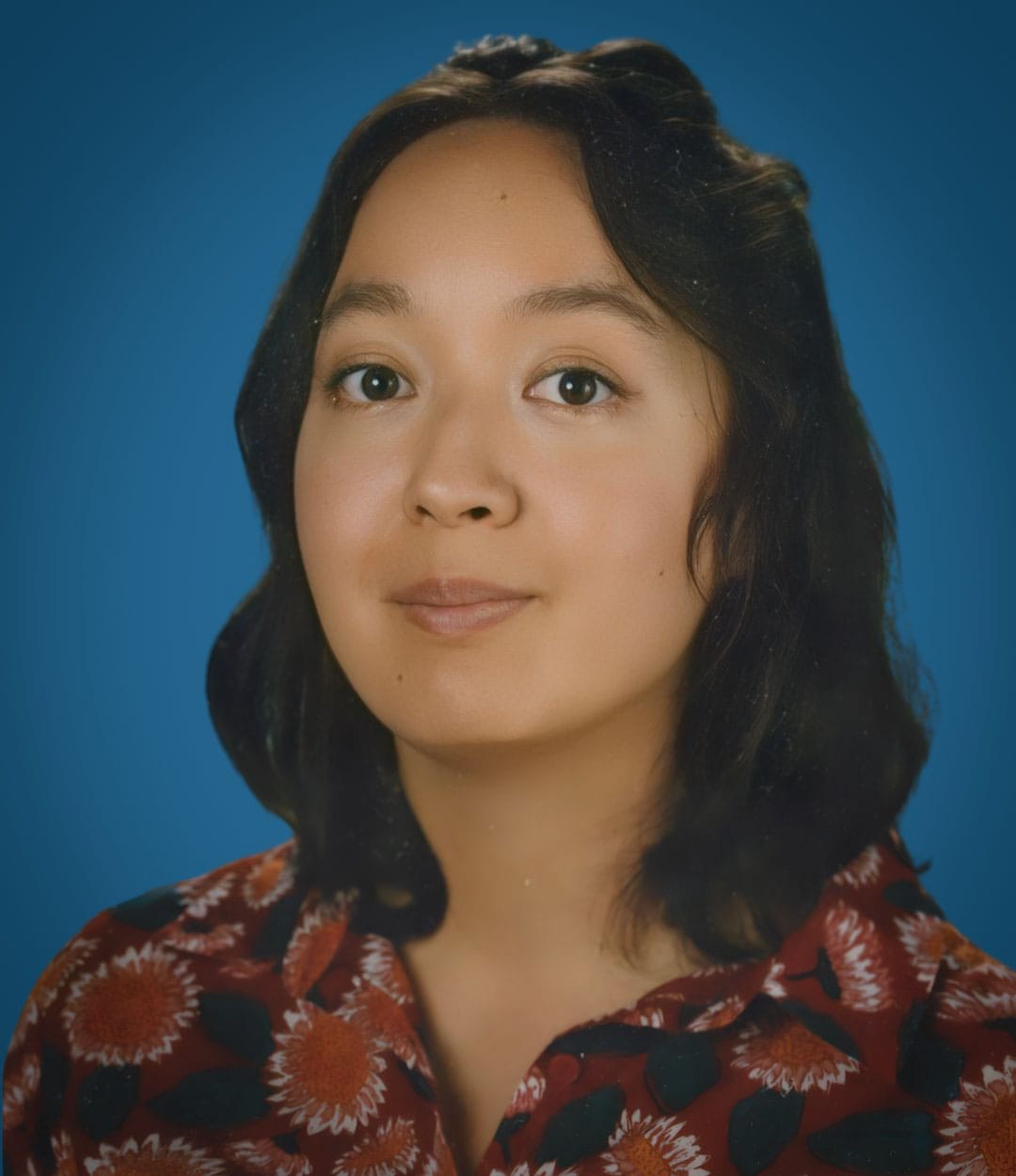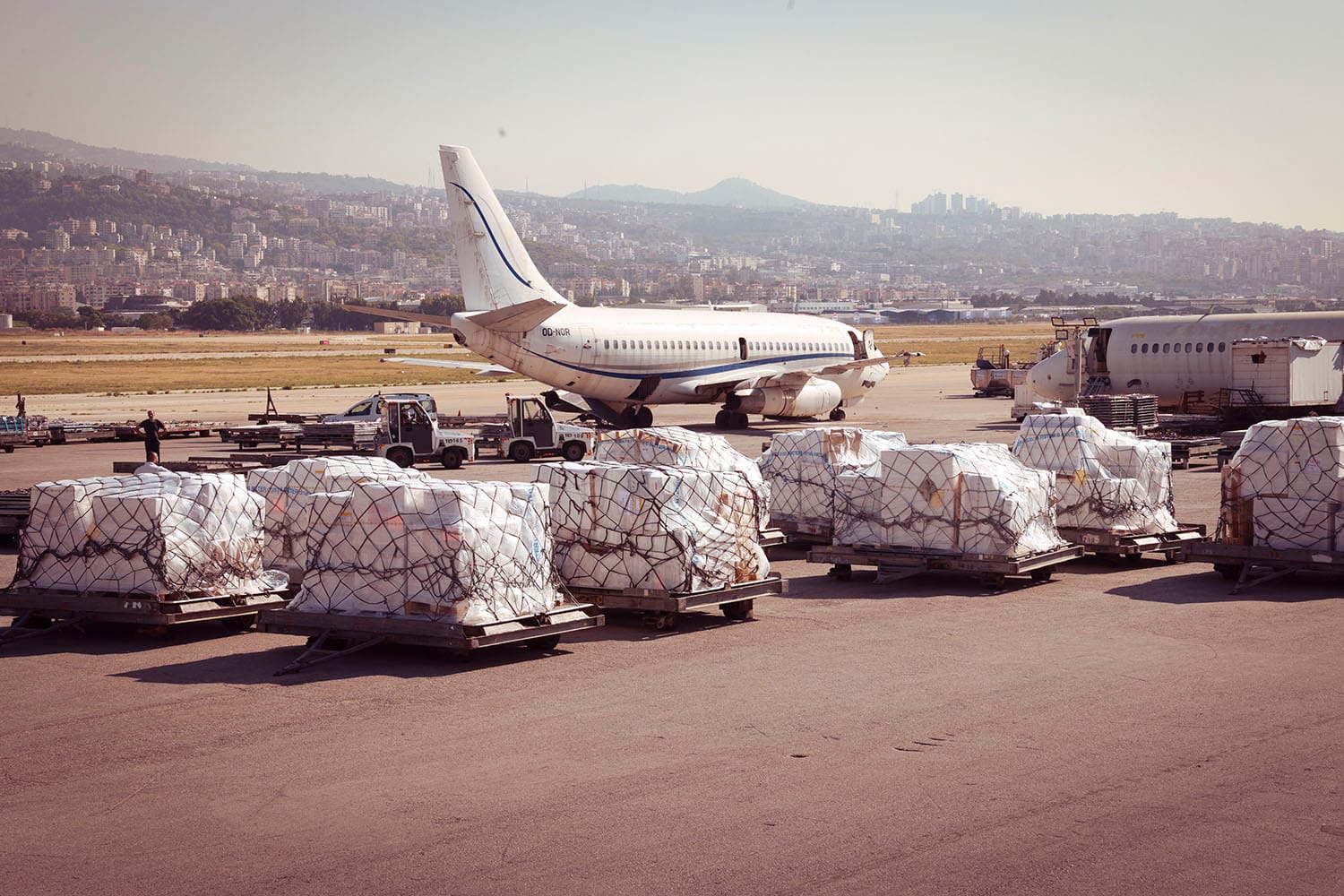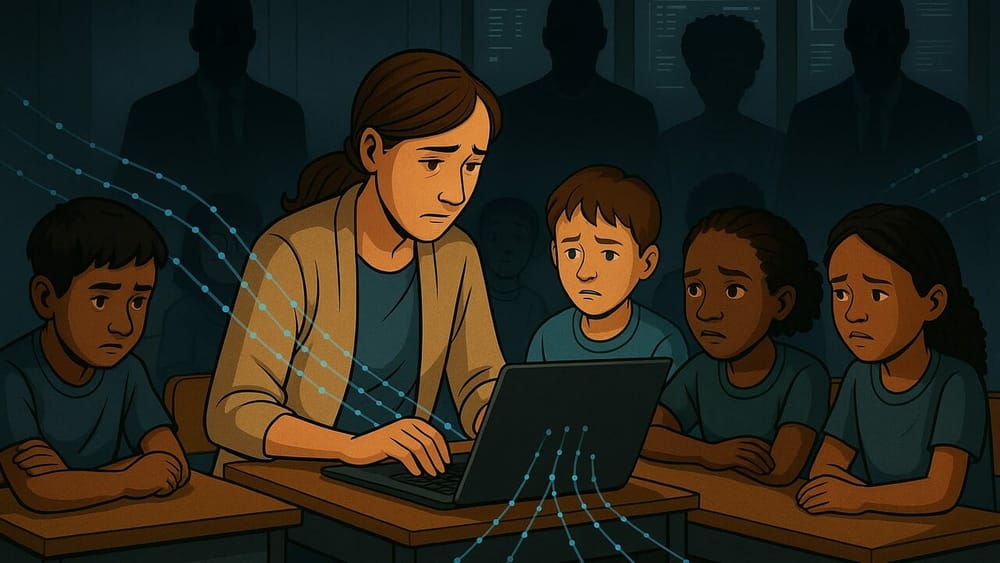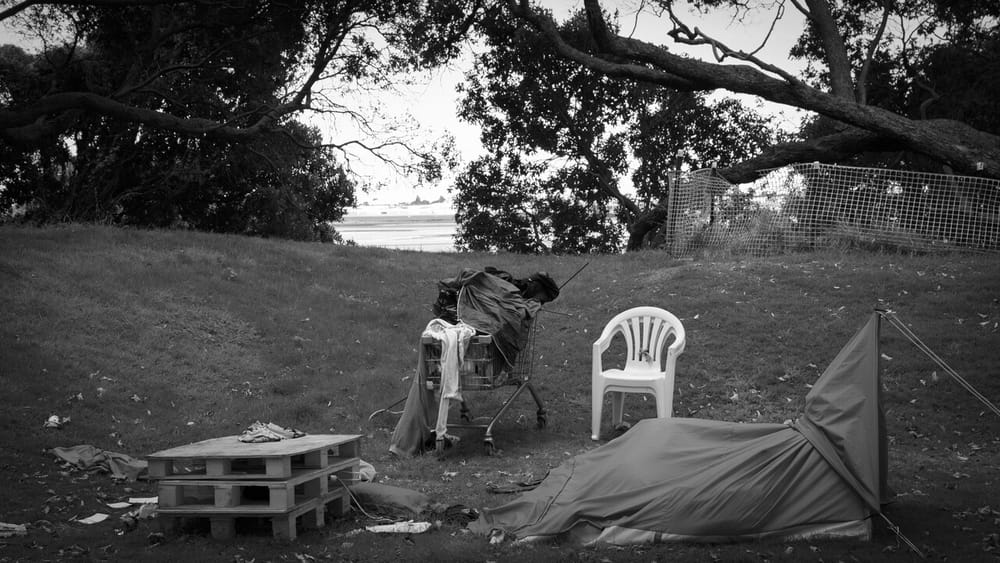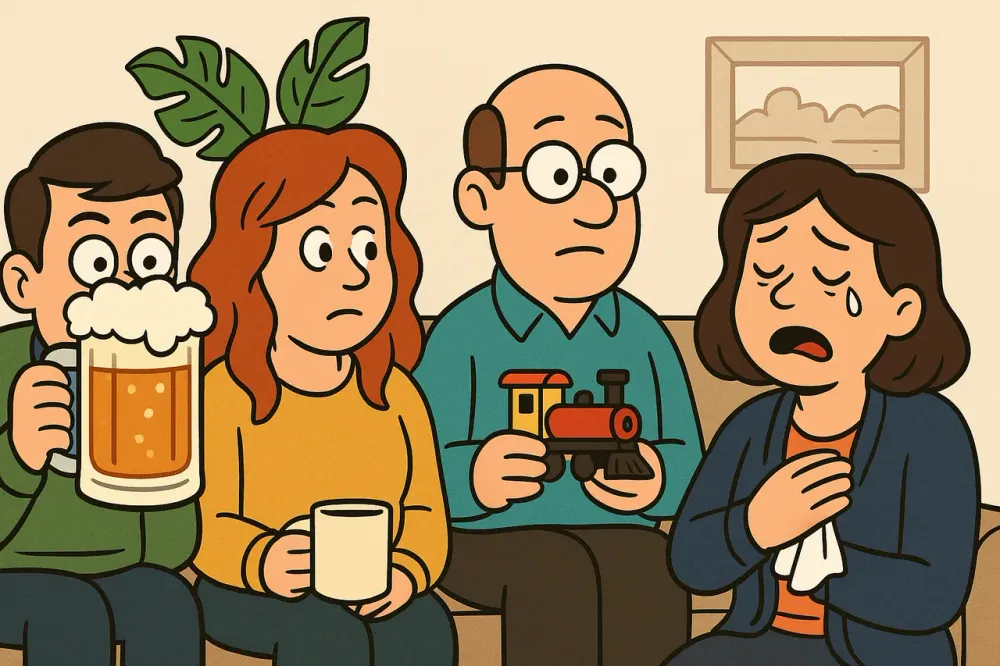The many complex layers involved in humanitarian work are often largely invisible to the distant onlooker. Providing essential aid such as food, water, sanitation and medical supplies to those in need is only the surface; beneath these provisions, humanitarians must undertake rigorous, detailed research to determine what kind of aid is needed and how it can be successfully and efficiently delivered. Organisations establish in-depth understandings of local culture, building trust and rapport within communities. Aid can also carry risks for those it seeks to help, such as dependency, exacerbating inequalities or inadvertently causing harm if not carefully planned and executed. In such complex and changing environments, humanitarian workers must continually analyse the situation and adapt their roles to ensure they improve wellbeing and save lives.
Humanitarian work is often obstructed by politics and fraught with ethical dilemmas. One of the most significant challenges humanitarian organisations face is maintaining neutrality—the principle that aid should be provided without political or military alignment. Neutrality is essential for accessing conflict zones and ensuring that aid reaches those most in need, but it also raises moral dilemmas. Should humanitarians remain silent in the face of atrocities to maintain neutrality, or should they speak out, potentially jeopardising access and impartiality?
This article explores the evolution of humanitarian neutrality, beginning with its historical foundations in state neutrality, followed by its transformation into a humanitarian principle. It then examines the history of the International Committee of the Red Cross (ICRC), the first organisation to formalise neutrality in humanitarian work, before comparing it to Médecins Sans Frontières (Doctors Without Borders, MSF), which later challenged the principle. Finally, we hear from Arunn Jeagan, a seasoned humanitarian with over 15 years of experience, including seven with MSF. Jeagan shares his thoughts on the principle of neutrality, offering perspective on negotiation and the challenges of impartiality in volatile environments.
Neutrality: a principle under constant negotiation
Before humanitarian organisations such as the ICRC or MSF could operate effectively in conflict zones, they had to define and defend an important principle: neutrality. But neutrality was not a humanitarian concept to begin with. It was originally a state-driven legal doctrine, a way for nations to avoid entanglement in war while maintaining diplomatic and economic relations with warring parties.
For centuries, neutrality meant non-intervention. A neutral country could not offer military aid to belligerents, but it could still engage in trade and diplomacy. The Hague Conventions of 1899 and 1907 codified these principles, establishing rules for how neutral states should behave in wartime. This form of neutrality was built on strategic interests—protecting national sovereignty rather than humanitarian ideals. The Hague Conventions defined neutrality as:
“The legal status arising from the abstention of a state from all participation in a war between other states, the maintenance of an attitude of impartiality towards the belligerents, and the recognition by the belligerents of this abstention and impartiality.”
However, as the scale and nature of warfare changed, so too did the meaning of neutrality. By the late 19th and early 20th centuries, war was no longer confined to battlefields. Civilians increasingly found themselves caught in the crossfire, and humanitarian actors began to question whether remaining neutral could still mean remaining ethical.
The International Red Cross
Swiss national Henri Dunant conceived the idea of the International Red Cross in 1859, after witnessing the suffering of the victims of the Battle of Solferino in Italy. In his moving book, A Memory of Solferino, and through his activism that followed, Dunant proposed the creation of a national relief society made up of volunteers designed to provide neutral and impartial aid to those suffering in war.
Dunant’s vision for neutral humanitarian aid—regardless of nationality—was revolutionary. At a time when battlefield care was largely dependent on military resources and often neglected enemy combatants, his idea introduced a radical shift: humanitarian assistance should be neutral, independent and available to all who needed it, regardless of which side they fought for. His advocacy challenged the prevailing notion that aid in war was a matter of national interest rather than a universal moral duty.
In 1863, Dunant, along with a group of five prominent Geneva citizens—known as the Committee of Five—established the organisation that would later become the International Committee of the Red Cross (ICRC). This group aimed to formalise and coordinate neutral humanitarian relief during armed conflicts. Their efforts led to the 1864 Geneva Conference, where an international gathering of states resulted in the adoption of the First Geneva Convention, a landmark treaty that established legal protections for wounded soldiers and medical personnel caring for them. Although limited in scope, this treaty was a critical first step toward Dunant’s broader vision. It laid the foundation for what would become international humanitarian law (IHL), a body of rules designed to limit the effects of armed conflict and ensure the protection of those not participating in hostilities.
For the first decades, this battlefield-focused neutrality was relatively straightforward to uphold, as warring parties generally recognised the necessity of medical assistance for troops. However, as the ICRC’s mandate expanded beyond direct battlefield care, neutrality became a matter of careful negotiation rather than simple acceptance. The Franco-Prussian War marked the first major expansion of the ICRC’s role. For the first time, it extended its activities beyond battlefield medicine to include prisoners of war (POWs), advocating for their humane treatment. This was a significant shift: POWs were not explicitly covered under the First Geneva Convention, but the ICRC’s involvement in monitoring and assisting them set a precedent for future legal protections.
By World War I, the ICRC had expanded even further. It set up the International Prisoners of War Agency, which collected and exchanged information on POWs, allowing families to learn the fate of missing soldiers. Beyond POW camps, the ICRC also began responding to the wider humanitarian consequences of war. It assisted interned civilians, facilitated prisoner exchanges and worked to improve conditions in occupied territories where civilians were caught between warring factions. However, the existing Geneva Conventions still did not provide explicit legal protections for civilians in wartime.
The ICRC’s work during WWI led to legal changes. The 1929 Geneva Convention on Prisoners of War was directly influenced by the ICRC’s wartime experiences, as it became clear that POWs needed explicit legal protections under international law. This treaty introduced minimum standards of humane treatment, including food, medical care and protection from torture. However, civilians were still left largely unprotected under international law. While the ICRC had assisted displaced persons and civilian detainees where possible, its role in protecting civilians remained limited and unofficial.
Despite these challenges, neutrality remained central to the ICRC’s mission, though it was still based more on practical decisions than a formalised doctrine. The ICRC continued to expand its humanitarian reach, establishing branches worldwide and gaining international recognition. It was awarded the Nobel Peace Prize in 1917, acknowledging its humanitarian efforts during WWI. However, this period also marked the beginning of the ICRC’s struggle to balance neutrality with moral responsibility—an issue that would become far more pronounced during World War II, when the question of civilian protection in war zones would become impossible to ignore.
While World War I demonstrated the beneficiary power of an international humanitarian organisation, World War II revealed the limitations neutrality can have on that power.
At the outbreak of the war in 1939, the ICRC focused primarily on assisting prisoners of war (POWs), coordinating aid deliveries to POW camps and facilitating communication between prisoners and their families. However, there were no legal protections for civilian detainees, including Jewish prisoners, under the existing Geneva Conventions. Despite repeated attempts to gain access to Nazi internment camps, the ICRC was denied entry, as Germany classified its treatment of Jews as an internal matter.
On August 8, 1942, the ICRC received credible intelligence about Nazi mass extermination plans. Gerhart Riegner, the representative of the World Jewish Congress (WJC) in Geneva, sent a telegram through British and American consulates, warning of Nazi plans for the systematic extermination of Jews in occupied Europe. Riegner’s intelligence came from Eduard Schulte, a German industrialist with high-level Nazi contacts, who secretly informed anti-Nazi groups that the Nazis intended to use gas chambers for mass murder. However, the British Foreign Office and US State Department initially dismissed the telegram as exaggerated propaganda, delaying any formal response. Public acknowledgment of the Holocaust did not come until December 1942, when the United Nations issued a formal condemnation of Nazi atrocities.
Despite mounting evidence, the ICRC remained silent, adhering to its policy of neutrality and confidential diplomacy. Jewish organisations such as the World Jewish Congress urged the ICRC to take a stand, but the organisation chose to focus on diplomatic channels rather than public denunciation. Some Allied officials also criticised the ICRC’s reluctance to speak out, particularly as further intelligence reports confirmed the systematic nature of the Holocaust.
Although it remained silent, the ICRC attempted to increase its humanitarian efforts. Throughout 1943, it worked with Jewish aid organisations to send food and medical supplies to concentration camps. However, these efforts were heavily restricted by the Nazis, and much of the aid never reached its intended recipients.
In June 1944, after repeated requests to inspect conditions in Nazi camps, the ICRC was invited to visit Theresienstadt, a Nazi-established ghetto and transit camp in Czechoslovakia. The Nazis staged an elaborate deception, temporarily improving conditions, staging cultural performances and coaching prisoners to mislead the delegation. The ICRC’s subsequent report noted relatively favourable conditions, as it was only allowed to see a sanitised version of the camp. While the organisation may have hoped that cooperating with the visit would lead to further access to other camps, critics later argued that its willingness to accept Nazi terms and failure to challenge the deception reflected the limitations of its commitment to neutrality.
By late 1944, the ICRC intensified its efforts, working with Jewish and resistance groups to rescue thousands of Jewish prisoners from Hungary, Romania and Ravensbrück. In early 1945, it negotiated the release of thousands of concentration camp detainees, facilitating their evacuation through the Swedish Red Cross’s "White Buses" operation. However, these efforts came too late for millions of victims.
Following the war, the ICRC faced growing criticism for its failure to condemn the Holocaust despite having access to reliable reports of genocide as early as 1942. Survivors and Jewish organisations openly criticised the ICRC for its failure to condemn the genocide. In 1948, the Israeli government submitted a formal complaint, accusing the ICRC of moral failure for its wartime silence. Historians like Gerald Steinacher (Humanitarians at War) and Jean-Claude Favez (The Red Cross and the Holocaust) later revealed that the ICRC’s strict adherence to neutrality and secrecy had fuelled perceptions of complicity or cowardice.
World War II fundamentally reshaped the concept of neutrality—not only for humanitarian organisations but also for states, international law and global ethics. Before the war, neutrality had largely been understood in two ways: as a legal right of states to abstain from conflict and as a humanitarian principle that enabled aid organisations to operate in war zones without interference. However, the Holocaust and the unprecedented scale of civilian atrocities revealed the moral limits of neutrality, forcing a re-evaluation of how it should be applied.
The war demonstrated that neutrality had to be balanced with moral responsibility—humanitarian organisations could not simply observe atrocities without acting. This led to several critical developments.
The first came in in December 1948. The United Nations General Assembly adopted the Universal Declaration of Human Rights (UDHR), marking a shift in how the world viewed human rights, state sovereignty and neutrality. The declaration recognised that neutrality could not override the protection of fundamental human rights.
The UDHR challenged the pre-war concept of sovereignty, which had often been used to justify inaction. No longer could states claim that crimes committed within their borders were beyond international scrutiny. Although the UDHR was not legally binding, it created a framework that influenced future international law.
The next major development was an updated Geneva treaty. The atrocities committed against civilian populations during World War II strengthened the ICRC’s advocacy for a civilian protection treaty. In the aftermath of the war, the ICRC collaborated with governments and legal experts to draft and promote what became the Fourth Geneva Convention, which was officially adopted on August 12, 1949. This treaty legally established that civilians had the same right to humanitarian aid as soldiers. For the first time, international law explicitly recognised:
- The protection of civilian populations from military occupation.
- The right of humanitarian organisations to access civilians in conflict zones and demand their protection.
- The prohibition of forced transfers and deportations, outlined in Article 49, preventing abuses similar to those seen in Nazi-occupied Europe.
- The prosecution of war crimes against civilians under international law.
The ICRC played a key role in these negotiations, ensuring that its wartime experiences and failures were addressed in the new legal framework.
Despite the legal shifts of the late 1940s, the ICRC was slow to adapt, continuing to rely on confidential diplomacy rather than public advocacy, even as new humanitarian movements challenged its methods. However, in 1965, recognising the need for a clear ethical doctrine amid Cold War conflicts and decolonisation struggles, the ICRC formally adopted the Seven Fundamental Principles—humanity, impartiality, neutrality, independence, voluntary service, unity and universality. This established a strong ethical foundation for its humanitarian work. While neutrality remained a guiding principle, it was not a justification for inaction; the ICRC committed to providing aid based solely on need, free from political influence, while actively engaging all parties to secure humanitarian access and protect those affected by war.
These principles marked a significant step forward, but they did not resolve all tensions. Even after WWII and the adoption of the Fourth Geneva Convention, the ICRC remained reluctant to publicly denounce human rights abuses.
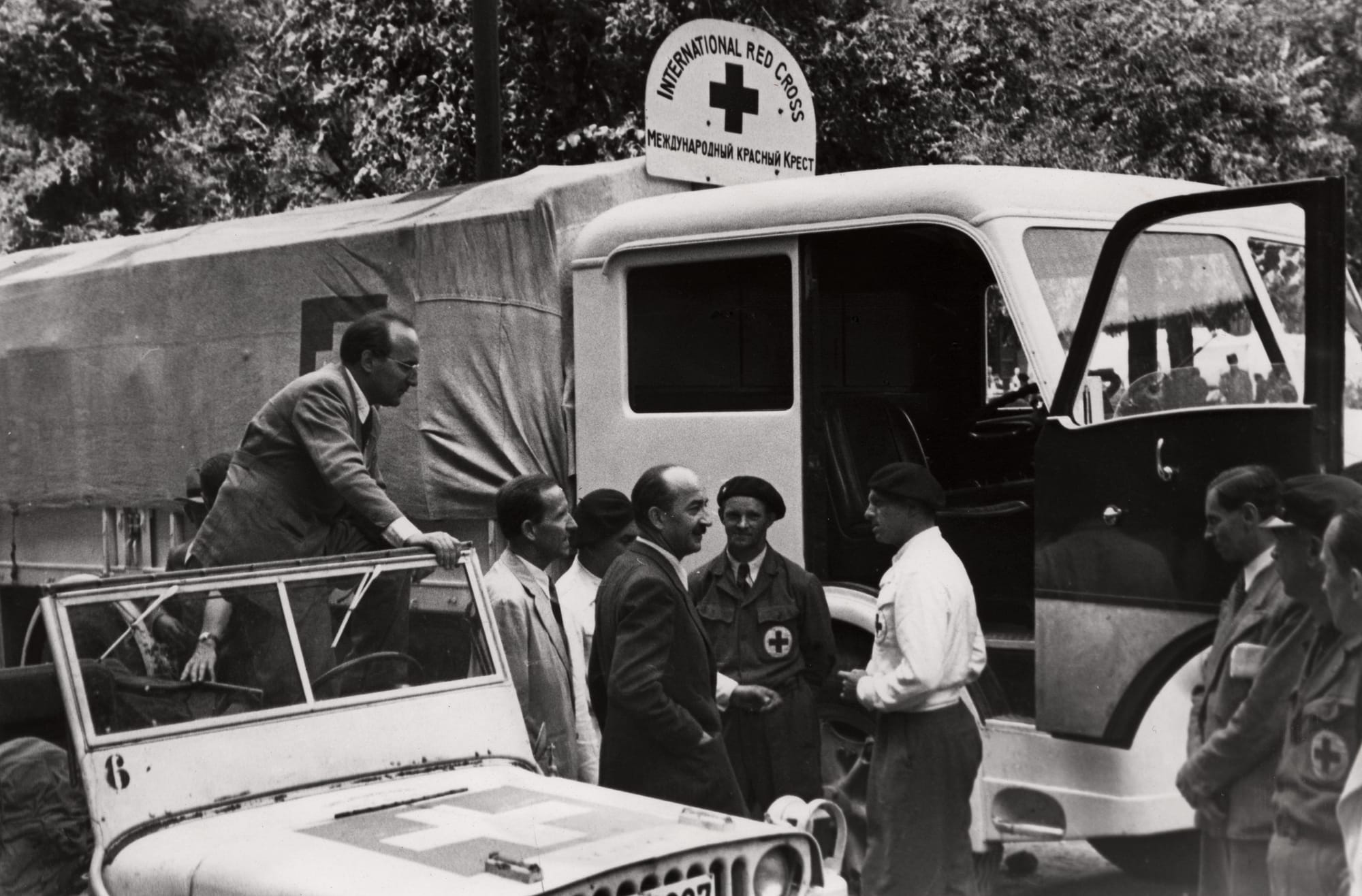
The ICRC’s controversial silence during World War II highlighted the difficult balance between maintaining neutrality and addressing moral atrocities—a tension that resurfaced during the Biafran War in the 1960s. During this conflict, French doctors working with the ICRC in Nigeria became frustrated with what they saw as the limitations of the organisation’s strict adherence to neutrality. These doctors argued that remaining neutral often meant avoiding public condemnation of atrocities, which they believed was a moral necessity to draw attention to suffering. This frustration later lead to a major shift in the humanitarian sector, with the establishment of new approaches to aid work.
Nearly two decades after the Biafran War, in 1988, Swiss historian Jean-Claude Favez published Une Mission Impossible, a detailed critical account of the ICRC’s actions during World War II, which further reinforced the limitations of its neutrality. Favez’s book offered what earlier critiques could not: access to the ICRC’s internal archives, which provided undeniable evidence that the organisation had been aware of the mass persecution, torture and murder of Jews in Nazi concentration camps. Favez demonstrated that the ICRC had received numerous credible reports from survivors, diplomats and humanitarian workers during the war but deliberately chose to remain silent. This archival validation not only confirmed earlier criticisms but also revealed the specific decision-making processes within the ICRC, showing how its commitment to neutrality and fear of losing access shaped its choices.
Following Favez’s revelations, the ICRC’s stance evolved from its prior justifications. Before the book’s publication, the organisation defended its silence as a means to preserve access and maintain neutrality. Afterward, however, the ICRC acknowledged the moral complexity of its wartime decisions. In 1995, ICRC President Cornelio Sommaruga acknowledged the organisation's shortcomings during the Holocaust, stating that the ICRC "did not succeed in moving beyond the limited legal framework established by the States."
Criticism of the ICRC escalated further in 1996, when it released its World War II files to the United States Holocaust Memorial Museum. These documents confirmed the extent of its knowledge about the atrocities and fuelled arguments that, by prioritising access over public condemnation, the organisation missed a crucial opportunity to save lives by drawing international attention to the Holocaust. The decision to release these files was likely driven by a commitment to transparency and a need to rebuild trust amid ongoing criticism. This move signalled an acknowledgment that confronting its historical decisions openly was essential for the ICRC’s credibility and accountability as a humanitarian organisation.
To this day, the fundamental principles of the ICRC have not changed significantly. As the trailblazer of organised humanitarian aid, the ICRC is mandated to uphold the standards it worked to create in order to protect the righteousness and reputation of humanitarian work. The ICRC’s crucial role in the foundation of humanitarian work has granted it a unique and powerful position as the guardian of humanitarian law. Its legacy spans over 160 years of providing aid across the globe.
Médecins San Frontières
Aid organisation Médecins San Frontières was established during the the Biafran War in the late 1960s, when the Igbo people seceded from southern Nigeria to create the Biafra Republic. The ICRC put out a call for medical volunteers to provide aid. Dr Max Recamier had previously volunteered with the ICRC and responded to this call, leaving for Nigeria with new volunteer Dr Bernard Kouchner and only four other medical staff.
In three years, the death count in Biafra reached atrocious levels, with the upper estimate at 3 million. The situation in Biafra, exacerbated by bombing, famine and a blockade that prevented aid from reaching civilians, became a focal point for those who could no longer remain silent. The doctors—despite signing a contract of discretion with the ICRC that required them to remain neutral—found it impossible to ignore the widespread suffering. They began to openly criticise the Nigerian government and the ICRC for their perceived inaction, despite the risk of retaliation. Soon, these doctors—who had become vocal advocates for the suffering civilians—were labeled as the "Biafrans."
Reflecting on those events more than 50 years later, Kouchner described the moment in a 2021 interview with Agence France-Presse (AFP): “The children were dying en masse because the army was blocking all supplies. It was clear to us young doctors that speaking out against this situation was our duty as medics.”
Their decision to speak out marked a departure from the ICRC’s strict neutrality and laid the foundation for a new form of humanitarianism—one that prioritised the lives of those suffering over political considerations.
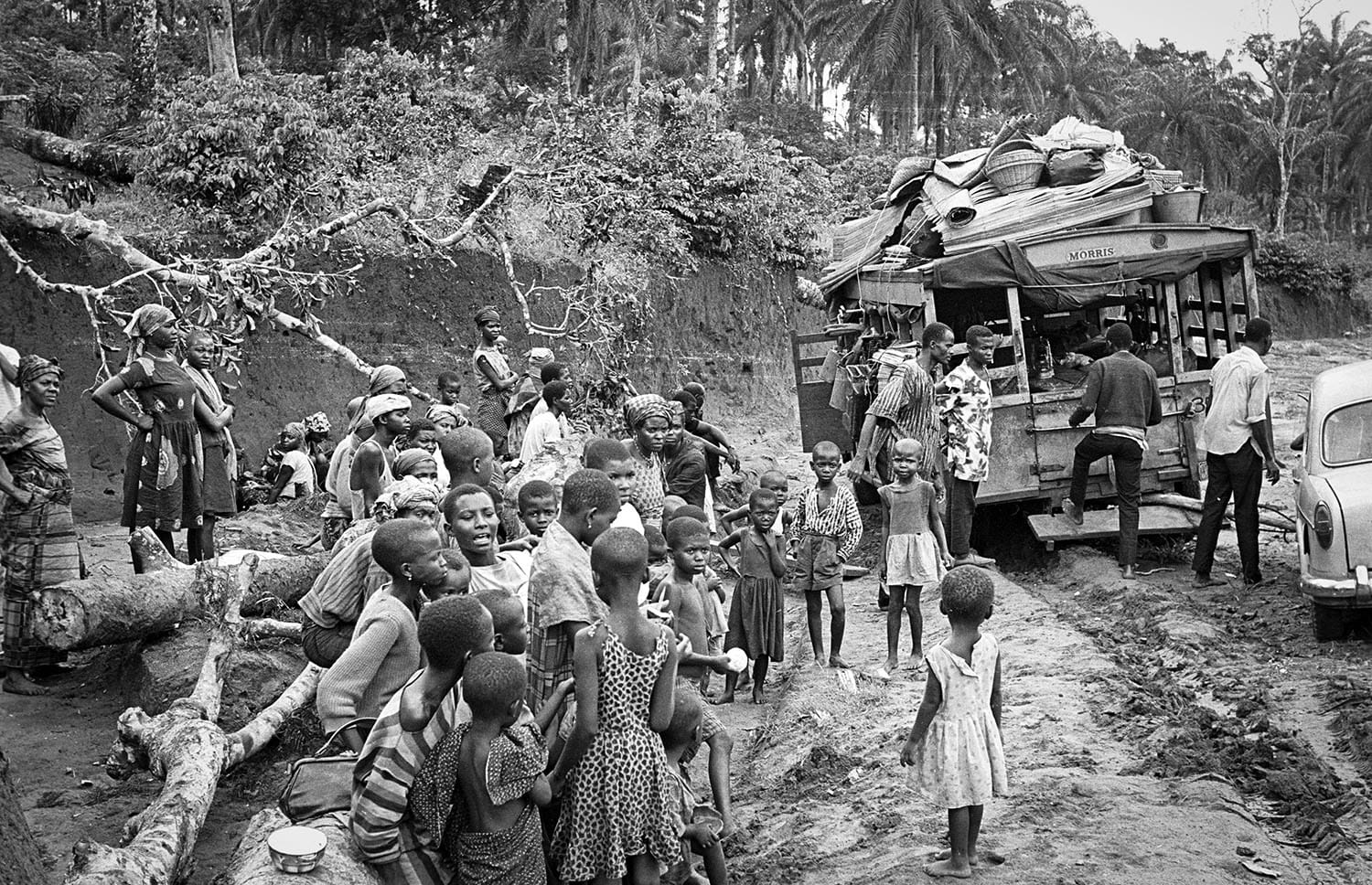
In 1971, Médecins Sans Frontières (MSF) was formally established by Recamier, Kouchner and other key people who believed that humanitarian aid should be delivered without political or religious constraints. The organisation adopted a ‘guerilla doctors’ approach, offering flexible, fast-moving and often unconventional medical assistance in areas where traditional aid organisations, bound by bureaucratic rules and neutrality, could not operate. MSF first provided aid to Managua, Nicaragua, after the devastating earthquake of 1972, followed by Honduras in 1974 in the aftermath of Hurricane Fifi’s destruction. MSF’s first large-scale medical program came in 1975 when they began providing vital medical care to refugees in Cambodia amidst the chaos of the Khmer Rouge regime.
However, by 1979, a majority of MSF members realised that the organisation's “guerilla” approach was not sustainable in the long term. While the flexibility of this style allowed MSF to operate quickly and independently, it also left the organisation vulnerable to disorganisation and inefficiency as it expanded. There was growing concern that without formal structures in place, MSF would struggle to manage its growing operations and respond to global crises effectively.
Subsequently, MSF began to adopt a more organised structure, a decision that was met with significant resistance from some of the original members, particularly Recamier and Kouchner. They and others who had founded the organisation were critical of this shift, feeling that it risked diluting the spirit of rapid, flexible aid that had characterised MSF's initial approach. Kouchner, in particular, was a proponent of maintaining the spontaneity and activism that had driven MSF’s response to crises like Biafra, believing that once the organisation became more institutionalised, it would lose its ability to respond quickly to emergencies and would be beholden to bureaucratic constraints. This tension led to a split, with Recamier, Kouchner and others leaving MSF.
As the MSF changed and grew, it became, in its own words, more “realist.” Among its guiding principles is an ethos of being independent, impartial and neutral, and though these three traits overlap with the ICRC’s principles, the MSF uses its interpretation and application of these aspects to set itself apart. For example, MSF interprets neutrality not as silence in the face of injustice, but as a commitment to providing care to all, while also bearing witness to atrocities and speaking out when necessary. The MSF describes its independence as “fierce”, ensuring that its decisions are free from the influence of governments, political groups or funders. It continues to criticise the “humanitarian illusion,” the idea that aid work is simple and separate from politics. Instead, MSF acknowledges that delivering aid often involves navigating difficult relationships and making compromises, while being transparent about these challenges to remain accountable to the people it serves. This pragmatic but vocal use of neutrality has continued to spark debate, especially as MSF has repeatedly chosen to speak out about injustices during major global crises.
The Rwandan Genocide in 1994 was a turning point in MSF’s history of speaking out. While the organisation had long maintained that neutrality did not mean silence, the genocide posed an unprecedented ethical dilemma: how to bear witness to mass atrocities while continuing to provide care to survivors. In a unprescedented move, MSF publicly denounced the genocide and, for the first time, called for international military intervention to stop the killings. This decision went beyond its traditional advocacy and sparked significant controversy, both within MSF and the broader humanitarian sector. Critics questioned whether this stance compromised MSF’s neutrality and could jeopardise its future access to conflict zones, while others praised it as a moral necessity in the face of unparalleled human suffering. The Rwandan Genocide became a defining moment, highlighting the tension between advocacy and neutrality in humanitarian work.
As a direct response to the challenges and controversies it faced during and after the Rwandan Genocide, MSF launched the Speaking Out Case Studies (SOCS) project in 1999. The initiative aimed to critically examine MSF's actions during emergencies, such as Rwanda, to better understand the ethical dilemmas, constraints and consequences of speaking out—or remaining silent. The project continues to serves as a tool for transparency and learning, documenting MSF’s decision-making processes in some of the most complex crises.
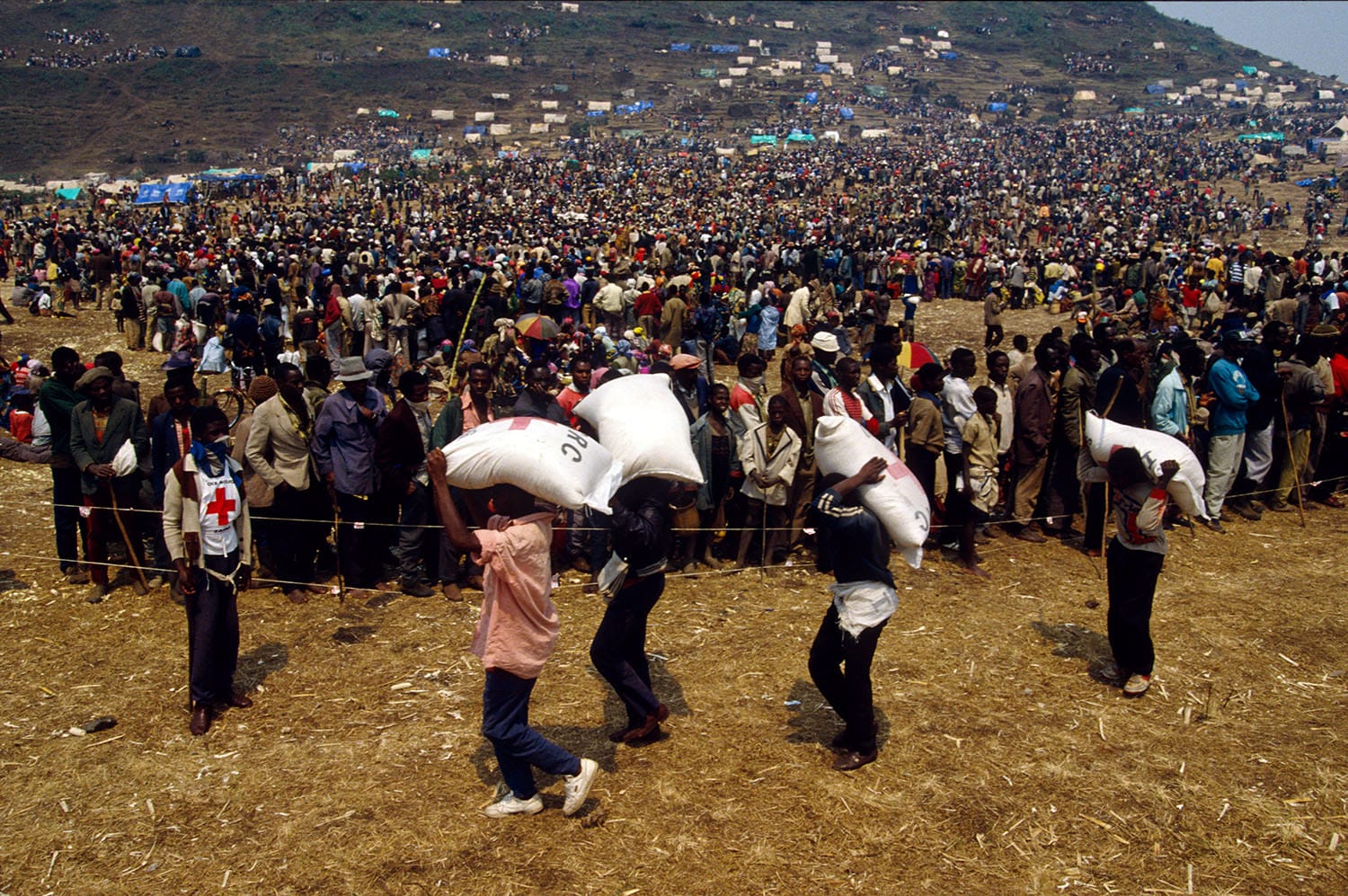
Following Rwanda, MSF continued to speak out during other significant events, such as the war crimes in Chechnya and the Srebrenica massacre. In Chechnya, MSF repeatedly called attention to the deliberate targeting of civilians and healthcare workers during the conflict, risking backlash from both sides of the war. Similarly, during the Srebrenica massacre, MSF denounced the lack of international action in preventing the systematic killing of thousands of Bosnian Muslims. MSF maintained its commitment to advocacy, even when faced with political risks and operational challenges.
However, speaking out did not always come without consequences. In 2014, MSF publicly advocated on behalf of the Rohingya minority in Myanmar, highlighting their persecution. This resulted in the Myanmar government ordering them to suspend all operations due to perceived bias in favour of the Rohingya over other ethnic groups and lack of impartiality. The result was tens of thousands of Rohingya refugees going without medical care until the MSF was invited back several months later. The suspension not only impacted the Rohingya population but also reaffirmed the very delicate balance MSF must maintain between advocacy and access.
In 2009, MSF paid Al Qaeda-affiliated militia a USD 10,000-per-project registration fee to work in Somalia. This decision, disclosed in the 2011 publication Humanitarian Negotiations Revealed, was controversial because it involved direct negotiation with armed groups linked to terrorism. Critics argued that such payments could indirectly fund militant activities or encourage extortion. MSF defended the decision, stating that the payment was a necessary compromise to gain access to vulnerable populations in an otherwise inaccessible region.
The MSF also faced dilemmas around when to withdraw for the safety of their workers. In both 2013 and 2023, MSF made the painful choice to leave Somalia due to escalating violence and growing threats to staff safety. These decisions, described by MSF as “among the most painful in MSF’s history,” were met with disappointment and criticism. Following the 2013 withdrawal, civil society groups urged the MSF to reconsider, emphasising the need for its services. Similarly, in July 2023, when MSF announced its decision to end services in Las Anod after extreme violence and attacks on medical facilities, Somalia federal parliament member Mursal M. Khaliif condemned the move as “cruel and inhumane” and “contrary to @MSF’s medical ethics, as well as principles of Humanity, impartiality, neutrality, independence, voluntary service, unity and universality.”
These incidents illustrate the complex ethical dilemmas MSF has had to navigate in its commitment to providing impartial care while upholding its principles. The organisation’s willingness to speak out, even at the risk of criticism or operational restrictions, reflects its belief that neutrality and impartiality do not require silence. It emphasises its willingness, and that of its doctors, to speak out on the behalf of their patients and the people they are helping in order to avoid being a “medical enabler of oppression.”
As Dr James Orbiniski, former International President of MSF, said in his 1999 Nobel Peace Prize acceptance speech, “We are not sure that words can always save lives, but we know that silence can certainly kill.” These words continue to guide MSF as it navigates the evolving challenges of delivering aid in a progressively complex world.
Complementary missions: the unique strengths of ICRC and MSF
No organisation can implement a pure ideology. MSF and the ICRC represent contrasting approaches to humanitarian work. While MSF is known for its outspoken, activist stance that often involves direct criticism of political actors, the ICRC adheres more closely to a principle of neutrality. These differing ideologies influence how each organisation responds to crises.
The Israel/Gaza conflict provides an example of these contrasting approaches. In January 2024, the ICRC issued a statement mourning the lives lost, summarising its work in the region and listing ways readers could help. MSF, by contrast, openly criticised the handling of the conflict by world powers, distributing protest materials and describing the United States’ vote against a ceasefire as a “vote against humanity.” This divergence depicts the ideological gap between the organisations: one prioritising neutrality to safeguard its humanitarian mission, the other embracing advocacy to challenge injustice.
Another key difference between the ICRC and MSF lies in their accountability and operational approaches. As the guardian of humanitarianism, created alongside the foundation of international humanitarian law, the ICRC is accountable to the broader system of humanitarian aid. It must uphold the principles and rules of humanitarian work to protect the integrity of these efforts globally, often prioritising its relationships with governments and armed groups to maintain neutrality and ensure future access. This commitment to neutrality and confidentiality has historically granted the ICRC access to areas where other organisations were denied entry, enabling it to provide aid and monitor conditions in some of the world’s most restrictive and dangerous environments.
The MSF, on the other hand, operates within the humanitarian system but also challenges its constraints. Its accountability focuses directly on the people in need, prioritising transparency and advocacy over maintaining diplomatic relationships with governments or adhering to rigid interpretations of neutrality. This flexibility allows the MSF to act swiftly in crises, often becoming the first organisation on the ground to provide aid in areas that are dangerous, chaotic or politically sensitive. By relying on private funding and maintaining operational independence, MSF can mobilise quickly without waiting for the approval or support of states or intergovernmental bodies.
These distinct approaches mean that while the ICRC excels in gaining access and quietly working behind the scenes to uphold humanitarian principles, MSF leverages its operational independence to combine swift, on-the-ground medical care with a willingness to speak out against atrocities, shining a light on injustices and mobilising global action while addressing urgent needs in conflict zones and crises. The ICRC safeguards the broader framework of humanitarian law and its implementation, ensuring access and neutrality even in the most restrictive environments, while MSF ensures that immediate needs and ethical imperatives are not overlooked. Together, these complementary strengths make both organisations indispensable in the humanitarian sector.
It would be reductive to label the ICRC as purely pragmatic and MSF as purely idealistic. No humanitarian organisation operates exclusively within one framework or the other. The balance between pragmatism and idealism is a necessary and ongoing negotiation—one that defines the humanitarian sector itself.
Humanitarian scholar Hugo Slim explores this tension in his talk Idealism and Realism in Humanitarian Action, delivered at the ACFID Humanitarian Forum in Canberra in October 2005. He describes idealism within humanitarian work as the process of identifying and protecting fundamental values, such as knowledge and life, above all else. Realism, on the other hand, grounds and guides humanitarians to focus on the limited feasibility of achieving ideals. Realism recognises the power of political actors, the difficulty of working with governments and armed groups during war, and the tactical decisions that must be made for a chance at providing aid and saving lives.
Slim argues that while idealism is necessary to uphold humanitarian principles, it must be tempered by realism to be effective in practice:
“[U]nless we are truly realistic about the challenges in applying our ideals, we are unlikely to succeed in realizing any of them. So we must have ideals but be wary of becoming either indignant or miserable if they are not easily realized.”
In other words, humanitarian organisations must hold onto their principles while also acknowledging that achieving them will always require negotiation, compromise and difficult tactical decisions.
The ICRC and MSF demonstrate the necessity of balancing pragmatism and idealism in humanitarian work. Their coexistence within the sector expands its capacity to respond to crises, holding states and systems accountable while maintaining the integrity and accessibility of humanitarian aid. Each organisation’s strengths not only fill the gaps of the other but together offer a vision of what humanitarianism can and should strive to achieve.
However, the success of humanitarianism does not rest solely on organisational philosophies—it is brought to life by the people on the ground who tackle these ideals and realities daily. What is it actually like to be a humanitarian?
A humanitarian at work
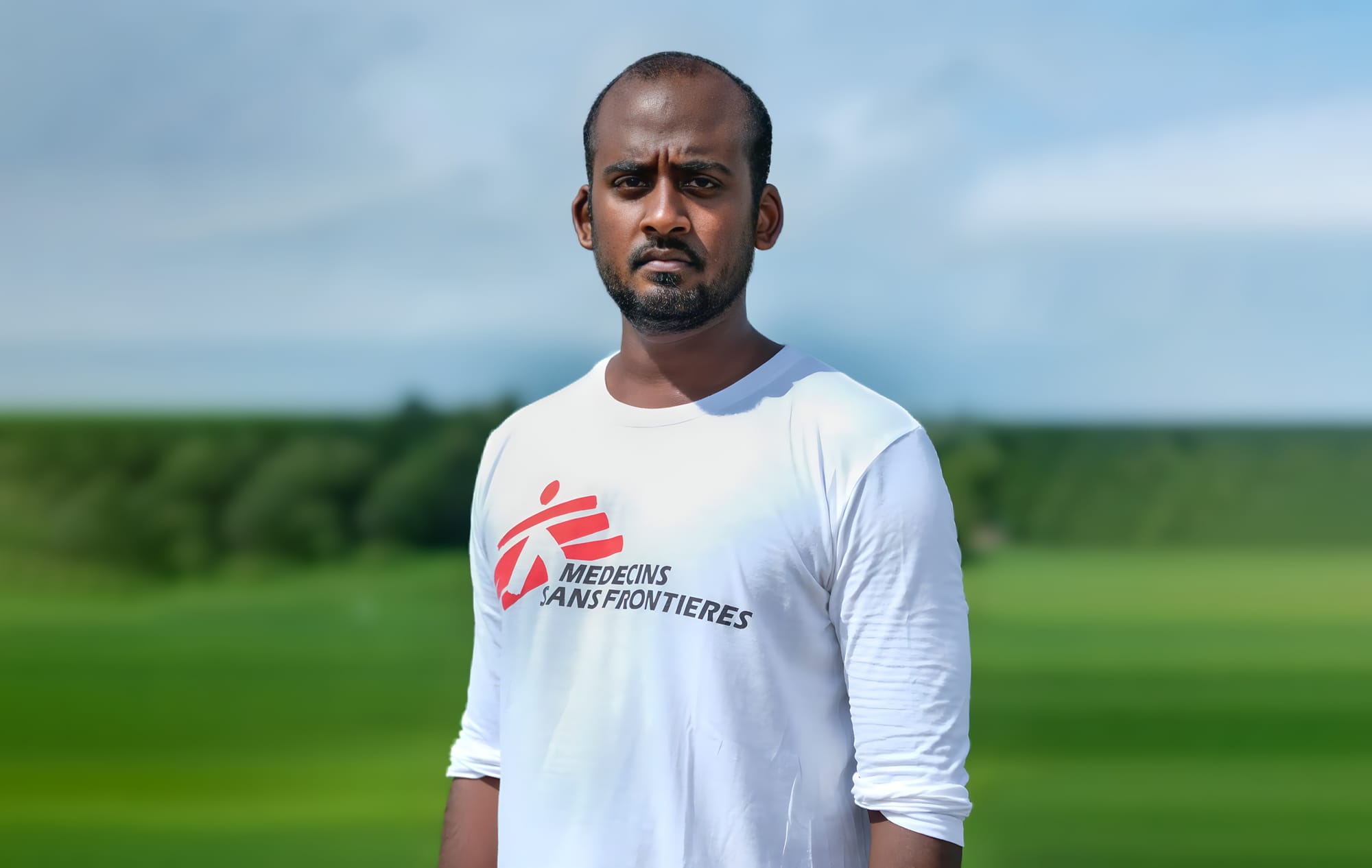
Arunn Jeagan has spent 15 years working in non-governmental organisations, including seven with Médecins Sans Frontières (MSF). Over his career, he has worked in more than ten countries, including Afghanistan, Iraq, Tajikistan, Sri Lanka, Jordan, Lebanon, Turkey, Yemen, Syria, Venezuela and Bangladesh. His roles have ranged from translator to human rights documenter to security manager, providing him with a broad understanding of the complexities of humanitarian work.
Drawing from his extensive experience, Jeagan offers The Lovepost his perspective on neutrality, negotiation and the process of building trust in the field. He also provides perspective on the process and value of bearing witness and speaking out as a non-governmental organisation (NGO).
Jeagan describes the MSF’s principles of neutrality as one of the reasons he was drawn to the organisation. “MSF really stood out for me as one of the organisations really pushing and trying to get direct implementation of programs on the field,” he says. “I switched to the MSF because I really saw the value in the way they use the principles of neutrality, independence and [the way they] try to get access.”
Independence is hugely important to MSF, and this is achieved in part through its funding, with nearly 98 percent coming from private donations. This transparency helps MSF demonstrate its independence and neutrality, which is crucial for gaining local trust. Affiliations with any government could compromise the organisation’s ability to act contrary to that government’s foreign policies or political stances. Jeagan emphasises that MSF can engage with both sides of a conflict, stating, “We are not an instrument of any other foreign government.”
The ways in which the MSF demonstrates and uses neutrality are more nuanced. Jeagan describes neutrality as being extremely important, and one of the organisation’s fundamental values and core principles. However, he explains that neutrality is “one of the most misunderstood terms in NGOs and charities.”
“We are not there to be neutral,” he says. “The goal is not to be a neutral activist; our goal is to go where the needs are the most pressing.” The MSF exists to provide aid to people in need and their promise of neutrality allows them access to those people. There are different ways it’s practised.
Jeagan illustrates MSF’s operating principle with an example from Taiz City, Yemen, where a besieged enclave was getting pounded by the Houthi forces daily. “We had a hospital on one side of the frontline, and we also negotiated to have a hospital on the other side of the frontline, because both . . . areas had civilians getting injured and killed, and they needed health care in both areas,” he explains. They were able to operate safely in a highly violent area because they were able to communicate that they were not working for any one side.
In Gaza, the MSF has offered aid to both Gaza and Israel, but does not currently run any medical programs in Israel because Israel already has strong emergency and health systems in place. So while the MSF is only operating in the occupied Palestine territories, they still approached the situation with neutrality.
Another example comes from Afghanistan, where MSF was able to treat people from both sides of conflict in the same hospital. Jeagan attributes this to a long history of engagement with local actors that understood their neutrality.
However, the reputation and operating principles of neutrality do not mean that MSF staff hold neutral positions. “We have an opinion," Jeagan says. "Our people are there because people are in need, people are suffering, and we will always, with extreme allyship, be on their side.” Here, Jeagan is drawing a clear distinction between MSF’s operational neutrality and the personal and organisational convictions that drive its work. Operational neutrality refers to MSF’s practice of treating all parties in a conflict equally, ensuring that aid is distributed solely based on need, without favouritism or political alignment. This neutrality is essential to gain access to all sides of a conflict and ensure the safety of staff and patients in volatile environments. However, this principle does not translate to moral or emotional neutrality on the part of MSF staff. Jeagan’s reference to “extreme allyship” reflects the empathy and solidarity MSF workers feel for the people they serve. They are not neutral in their commitment to alleviating suffering or addressing injustices.
By stating that "we will always... be on their side," Jeagan emphasises that MSF aligns itself with the individuals and communities facing crises, not with any political, military or ideological entities. This commitment ensures that MSF’s neutrality serves its purpose as a tool for access, while the organisation and its staff remain morally driven to advocate for the rights and dignity of those they assist.
Earning trust: the key to humanitarian success
Trust is the cornerstone of effective humanitarian work, particularly in settings where resources are limited and tensions can run high. Jeagan emphasises that building trust requires addressing the needs of all affected groups, not just one segment of the population. Reflecting on his time in Bangladesh, he recounts the challenges of working with Rohingya refugees who were provided with free water, latrines, shelter and healthcare—resources that many members of the host population lacked. This disparity, he explains, can unintentionally create friction. “In Bangladesh . . . people [were] already struggling," Jeagan says. "So when refugees come in and occupy land and take up resources and sometimes get better provisions than the local community, you can create disharmony.” To mitigate this, Jeagan stresses the importance of designing programs that benefit everyone, not just a particular group.
In other contexts, such as conflict zones, the challenges to trust and access are shaped by entirely different factors. During the height of the war in Syria, the MSF faced extreme challenges due to heavy violence, multiple controlled regions, fully besieged areas and varying levels of government involvement and scepticism toward NGOs. These restrictions significantly hindered access. “We had to really think about what direct implementation looked like,” Jeagan explains. “Sometimes we had to use implementing partners or cross-border activities.”
In a conflict as complex as Syria’s, traditional modes of operation were often impossible. Direct implementation, where NGO staff directly manage and deliver aid, is typically preferred to ensure quality control and adherence to principles like neutrality. However, the volatile and fragmented nature of the Syrian war meant that this approach often posed significant risks to both staff safety and operational continuity. As a result, MSF had to adapt its model to fit the realities on the ground.
One key adaptation was partnering with local organisations. By collaborating with community groups and local networks that had established trust within their regions, MSF was able to extend its reach into areas that were otherwise inaccessible.
Another innovation was cross-border activity. Operating from neighbouring countries, MSF coordinated the delivery of medical supplies and other aid into besieged or hard-to-reach areas. This strategy allowed the MSF to bypass bureaucratic and logistical barriers, such as those imposed by governments or warring factions, while maintaining a degree of oversight and accountability over the aid provided.
These strategies not only ensured MSF could continue its mission in Syria but also set a precedent for how NGOs approach similar challenges in other conflict zones. By demonstrating flexibility and a willingness to adapt traditional models, MSF reshaped how humanitarian organisations thought about operational frameworks in crisis settings.
According to Jeagan, MSF’s independence played an important role in enabling such adaptability. While many NGOs operate under the umbrella of the United Nations (UN), which grants them certain powers and logistical support, this affiliation can sometimes come at a cost. Being tied to the UN can limit an organisation’s perceived neutrality or restrict its ability to act independently in politically sensitive situations. MSF, by contrast, operates outside the UN system, allowing it to maintain its independence, neutrality and focus on impartial aid. Along with these principles, MSF prioritises transparency, ensuring that its actions and decisions are open to scrutiny and trust from the communities it serves.
Gaining trust can be as simple as letting their medical programs speak for themselves. Jeagan explains that in conflict zones, healthcare “is often one of the first structures to fail.” Hospitals are destroyed, medical staff flee and communities are left without essential care. In these situations, there is often a shared understanding among all sides in a conflict that healthcare is essential, making it possible for MSF to step in and fill critical gaps. However, this can only happen under certain conditions. These conditions include treating anyone in need without discrimination, maintaining neutral and weapon-free hospitals and ensuring that medicines and services are provided free of charge. For MSF to operate in areas controlled by armed groups, those groups must agree to respect these principles by allowing impartial care, refraining from interference and keeping weapons out of healthcare facilities.
Though this strategy is extremely effective, it is not successful in every scenario. In some scenarios, NGOs face severe challenges, such as hostility toward foreign workers or bureaucratic barriers that hinder their efforts. In Syria, for example, international staff became targets of abduction and violence, forcing NGOs to rethink their models and prioritise the safety of their teams. This often meant relying more heavily on local staff to continue operations in volatile environments.
This challenges the common misconception that NGOs and humanitarian work are primarily driven by White westerners travelling to war-torn countries or disaster sites, when in fact, operations are largely run by local staff. The MSF employs members of local communities as cooks, medical assistants, cultural translators and mediators. Jeagan talks about his work in Bangladesh as an example, where out of approximately 2,000 staff members, 700 were Rohingya community outreach workers, 1,250 were Bangladeshi staff and only 25 to 50 were international staff. “MSF then just becomes a part of a community,” he says. “And that is trust. That is really where the sweet spot of community integration and liaison is.” If problems arise, MSF staff can go to their guides who have a connection within the community and resolve the issues directly. Jeagan states that good integration within a population denotes how successful the organisation can be, stating that NGOs including MSF are recognising the importance of localisation and the importance of locally hired staff. “Local when possible, international when necessary,” Jeagan says.
Currently, MSF maintains its connection with the community through hospital committees, community engagement sessions and ongoing dialogue with the community. These efforts ensure that MSF’s humanitarian programs—such as healthcare delivery, public health education and crisis response—remain relevant to the community’s needs, culturally accepted and properly resourced to provide effective care. Jeagan describes this process as one of constant negotiation and discussion, explaining that it is essential to adapt programs in real-time to address shifting needs and concerns within the population. He argues that failing to engage with the community not only risks making programs ineffective but can also cause unintended harm. “If [you] don’t do that, you’re doing a disservice. And in some cases, you’re doing harm,” Jeagan warns.
MSF's commitment to constant dialogue and understanding extends beyond program delivery to the broader, strategic decisions MSF must make. When it comes to making big decisions—such as speaking out against injustice or the wording of its public messaging—the stakes are even higher, and the processes are more complex. Discussions are held between operations and medical departments to weigh the risks and benefits of each decision. Jeagan describes the tension of such dilemmas: “Often the medical colleagues don't want to do anything that might risk our access to the people because they want to continue treating them, while some operations people are looking at the bigger picture and saying, ‘Well, this systematic violence cannot continue. We're not here to patch people up so that they can just get killed in the next round of violence.’” Jeagan believes “that's a good dilemma, because we challenge ourselves to be better, we challenge ourselves to say, what’s best for the patients?”
To speak or stay silent: the humanitarian dilemma
The key distinguishing factor of MSF is its origin story and its reputation for speaking out. As Jeagan puts it, “it’s part of our DNA.” Jeagan highlights the power of speaking out through his work in South Sudan, where they witnessed an alarming rise in sexual gender-based violence. While treating survivors, “we realised that we were not here to put [on a] band aid solution so people can be treated and can go out and get abused again. So we decided to speak up, bring attention to the situation, and hope that that situation changed a little bit.” In this case, MSF’s advocacy was focused on raising awareness of a systemic issue to encourage change, without singling out specific organisations or entities.
In other cases, MSF takes a more explicit approach in its advocacy, as seen in the case of the Rohingya in Bangladesh. “We were quite vocal about our concerns about malnutrition in the Rohingya camps, and we were quite vocal about the WFP (the World Food Program),” Jeagan says. “We talked about the impending malnutrition crisis, and then foreign governments listened.” Unlike in South Sudan, this advocacy directly criticised a specific entity, urging the WFP and foreign governments to address the crisis. Jeagan explains that MSF’s independence often allows it to speak freely and critically about what they witness on the ground. “Whenever we have a program, we also see what advocacy position we can take.”
When it comes to concerns about the potential negative consequences of speaking out, Jeagan acknowledges that it’s a huge issue and something MSF carefully calculates. “It always goes back to what’s best for our patients—what’s best for the continuity of care for the people and what level of risk are we willing to take,” he explains. Being factual, informing stakeholders through due process and ensuring no one is caught off guard are key elements of their approach, making such decisions part of an ongoing conversation. “We often only speak out when there are no other instruments or tools available for us,” Jeagan says, emphasising that while advocacy is a critical part of MSF’s role, they exhaust all other options before taking such action. “More so than ever, we are also doing it in consultation with the local population,” he adds.
Since 1985, MSF has been providing medical care and support to the Rohingya, a group that the United Nations labelled in 2013 as one of the most persecuted minorities in the world. The Rohingya have faced decades of systemic exclusion, violence, and statelessness, making them particularly vulnerable to health crises and displacement. In 2014, before being ordered to suspend operations in Myanmar, MSF had already identified signs of a brewing humanitarian catastrophe. “We could see that the systems in Myanmar were ripe for another massive incident,” Jeagan recalls.
It was at that time that MSF made the bold decision to speak out against the systematic exclusion and mistreatment of the Rohingya. “We made a call, we took a risk,” Jeagan says. That risk carried consequences—MSF faced operational challenges and was temporarily barred from working in Myanmar. However, their decision to publicly address the issue demonstrated their commitment to speaking out when all other options had been exhausted, even at the risk of jeopardising access.
MSF’s warnings proved tragically prescient. In 2017, over 750,000 Rohingya fled Myanmar following a wave of massive violence, including widespread killings, sexual violence and the burning of entire villages. The crisis highlighted the systemic nature of the persecution MSF had long spoken about and cemented the organisation’s role as both a healthcare provider and an advocate for the Rohingya’s human rights.
“We had some issues, but then we’re back and operating there again now,” Jeagan says, highlighting MSF’s resilience and determination to continue supporting the Rohingya.
The changing landscape of global humanitarian work
The rise in long-term crises has forced NGOs to rethink their approach and adapt to a changing humanitarian landscape. Unlike short-term emergencies, protracted situations, such as the Rohingya crisis, require sustained and strategic responses. For example, as a result of the Rohingya crisis, over 1 million people have been living in refugee camps in Bangladesh for seven years. These camps, originally intended as temporary shelters, have become long-term settlements, creating unique challenges for humanitarian organisations.
To address these realities, NGOs are moving away from repetitive, short-term programs. “If we’re . . . in a country for seven years, we don’t want to have a one-year program seven times,” Jeagan explains. This means focusing on multi-year strategies that build on previous efforts, addressing immediate needs while evolving to meet long-term challenges. For example, initial efforts may focus on emergency healthcare, but over time, programs expand to include mental health support, education and vocational training to help communities adapt. This approach avoids stagnation, ensures resources are used effectively and reflects the complex, changing needs of populations living in prolonged crises.
However, it’s difficult for every organisation to adopt this approach, as many face pressures to deliver immediate results to satisfy donors and maintain funding. As Jeagan explained in an interview with MSF Australia, this focus on delivery and meeting key performance indicators can sometimes take precedence over long-term, patient-centred strategies. In the interview, he noted, “Keep the patients at the forefront in all your decision-making,” cautioning that without this focus, programs risk becoming disconnected from the realities and needs of the communities they aim to serve.
Jeagan acknowledges that in wars like the current one in Gaza, maintaining international visibility and providing protection can become difficult. However, he stresses that these efforts are still critical: “International visibility, the international instruments that prevent atrocities, that prevent crises, are still very important,” he says. MSF plays an important role in being present with affected populations, acting as a protection mechanism to ensure that communities are not entirely consumed by the horrors of conflict. However, Jeagan notes that fulfilling this role is becoming harder. “Despite our presence in Gaza, hospitals are still getting attacked, our convoys, our facilities,” he says, highlighting the escalating challenges humanitarian organisations face in conflict zones where even medical neutrality is no longer respected.
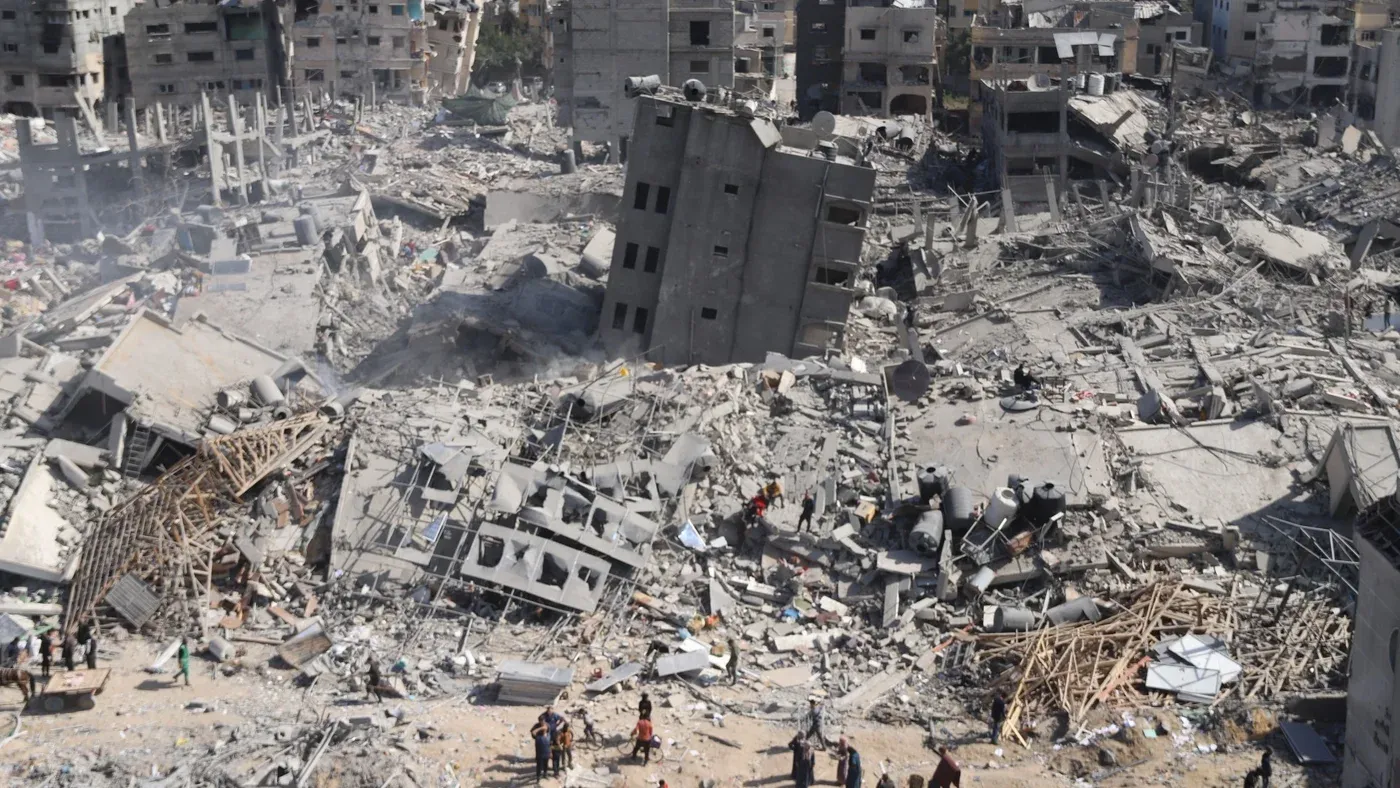
These attacks not only hinder MSF’s ability to deliver care but also undermine the broader principle of protecting civilians during war. Jeagan emphasises the importance of using MSF’s global platform to advocate for those who cannot advocate for themselves. “It is important for players like MSF, who have an international platform, who have the privilege, to stand up in these critical moments . . . on behalf of our patients and the local population,” he says.
By continuing to work in places like Gaza, MSF not only provides essential medical services but also shines a light on the violations of humanitarian principles. This dual function—of caring and bearing witness—becomes even more critical in conflicts where the rules of war are ignored, and the most vulnerable are left without protection.
In just one year, more humanitarian aid workers have been killed in Gaza than in any other conflict in recent history—a staggering statistic that troubles Jeagan. He expresses dire concern about how the events in Gaza are setting a dangerous new precedent for humanitarian work. “Gaza has shaken the fundamentals of how NGOs operate. Hospitals are getting targeted, hospitals are getting hit. International humanitarian law, as a tool, as a framework, is no longer being practiced [or] enforced,” he says.
Jeagan questions what the future holds for the protection of aid workers, hospitals and charities in conflict zones. “Because if Gaza is any kind of precedent, we have lost a huge safety net,” he warns. The erosion of humanitarian protections leaves him grappling with the ethical implications of deploying teams to places where aid workers are being directly targeted and negotiations no longer provide security.
He believes we are entering a new and uncertain era. “I am concerned, I am afraid and I’m also worried that we have lost the most valuable tool that we had: international humanitarian law,” Jeagan says, reflecting on the fragility of the principles that once safeguarded those delivering lifesaving care in the world’s most dangerous places.
Navigating the complexities of humanitarian work is a constantly evolving commitment, fraught with both practical and ethical dilemmas. The erosion of international humanitarian law, as highlighted by Jeagan, signals a troubling shift in the global landscape—one that leaves aid workers and the populations they serve dangerously vulnerable. Yet, even in the face of mounting challenges, organisations like MSF remain committed in their resolve to deliver care and bear witness to atrocities that might otherwise go unnoticed.
But the responsibility of upholding humanitarian principles cannot rest solely on the shoulders of aid workers. The work of organisations like MSF depends on a framework of laws that protect civilians and those who serve them, a framework that must be defended and reinforced by governments, institutions and individuals alike. It also requires regular citizens to speak out against violations, support humanitarian efforts and hold leaders accountable for ensuring these principles are upheld. Jeagan’s warnings about the erosion of international humanitarian law highlight how critical it is for people everywhere to demand that these laws be respected—because when they fail, the world becomes a far more dangerous place for everyone.
Boycotting oppressive regimes, advocating for policy change and amplifying the voices of those affected by war and displacement are all ways that individuals can contribute. Humanitarianism thrives when there is a collective effort to uphold its values. As Jeagan notes, we are entering a new and uncertain era, but it is precisely this uncertainty that demands courage, unity and action—not only from humanitarians but from all of us.
The challenges may be immense, but so too is the potential for change. For organisations like MSF, standing up in these moments remains not just a responsibility but a privilege—one that can only endure if supported by the collective will to fight for a more just and humane world.


